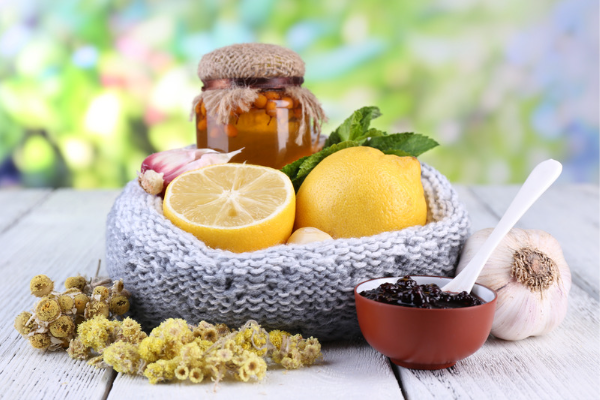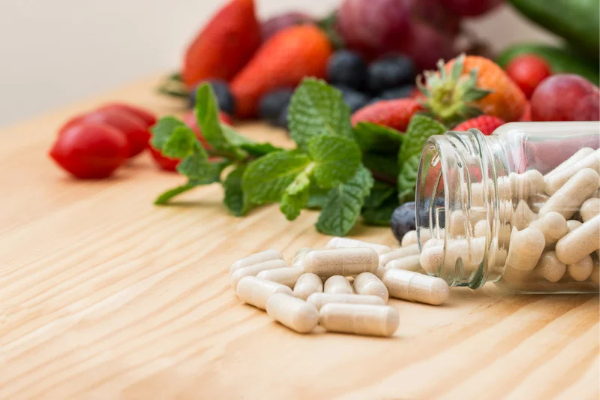
What Foods are Beneficial to Your Joints, and Which should be Avoided?
Including foods that heal and prevent joint pain in your diet may be an important first step. The things you consume have a direct effect on your health. Therefore it's important to make good eating habits a priority. Joints may be preserved, accidents avoided, and pain alleviated without resorting to pharmaceuticals by eating foods that reduce inflammation and include exercise and joint health, improve soft tissue, and increase bone density.
Anti-inflammatory foods might help you achieve your goal of better diet and joint health. Certain of the best anti-inflammatory nutrients for strong joints are discussed here, along with some foods to avoid.
Connection between eating well and joint pain
Eating a variety of nutritious meals helps your body function at its peak. Most individuals report feeling better after adopting a more nutritionally diverse and well-rounded diet that provides them with the necessary vitamins, antioxidants, minerals, and other nutrients. Attempt to adopt a diet similar to that of the Mediterranean, which is rich in fish, legumes, nuts, olive oil, and fresh Produce.
Diet and joint health or eating a healthy diet and drinking enough water will help you feel better overall and may reduce your symptoms by increasing your energy, helping you maintain a healthy weight, and boosting your mood. Your doctor or a registered dietician should discuss any major dietary changes. You might be limiting your diet needlessly or overusing a product (like mineral supplements) that is not helping your situation. It is also possible to supplement interactions with your prescription.
Foods that can be consumed
The symptoms of osteoarthritis may be greatly reduced by switching to a plant-based, fiber- and healthy-fat-rich diet like the Mediterranean. Recommended foods for Knee pain include those known to have anti-inflammatory properties. Here are some foods & supplements for joint health that should be prioritized:
Cherries
Red pigments in cherries are called anthocyanins, occurring naturally in plants. Evidence shows that consuming fresh cherries or drinking sour cherry juice will reduce inflammation. In addition, some research suggests that eating fresh cherries may help reduce gout attacks.

Image source: Photo by Simon Berger: pexels
Brassicas, or cruciferous vegetables
Brassicas are members of the cabbage and mustard families and are classified as cruciferous vegetables. The brassica family includes a wide variety of leafy greens, including mustard greens, kale, arugula, and purple cabbage. Cauliflower, Broccoli, and Brussels sprouts are a few of the many other well-liked and delicious veggies.

Image source: Image by ededchechine: Freepik
It is well-documented that this group of plants may inhibit a specific enzyme responsible for joint swelling. Additionally, they are a great source of healthful fiber, vitamins, and minerals, which will help you maintain nutrition and joint health.
Turmeric
Many cuisines rely heavily on turmeric. It contains a lot of curcumin, researchers have shown that curcumin extract is as effective as ibuprofen in relieving knee pain. Curry powder contains turmeric, responsible for the orange hue if you’re not accustomed to working with the spice on its own.

Image source: Photo by Karl Solano: pexels
Dairy
Calcium and vitamin D are abundant in dairy products, including yogurt, milk, and cheese. The increased bone density that results from the use of these nutrients may lead to a reduction in painful sensations. Additionally, dairy products include proteins essential for muscle growth and development. Those trying to keep their weight under control might benefit from selecting products that are low in fat as it improves lifestyle and joint health.

Image source: Photo by Pixabay: pexels
Oatmeal
Oatmeal, full of whole grains, has been shown to reduce inflammation. On the other hand, white flour and other processed grains have little nutritional value. Exercising helps build stronger bones and muscles but also stresses your joints. You should not only focus on nutrition and joint health to fuel their workouts but also to aid in their post-workout recovery and repair. Instead of reaching for a biscuit topped with cheese and sausage, go for some oatmeal that has been topped with fruits, nuts, and yogurt.

Image source: Photo by Life Of Pix: pexels
A variety of Seeds and Nuts
People who try avoiding animal products in their diets are in luck. There are many different kinds of nuts and seeds that contain omega-3s. Walnuts, almonds, chia seeds, flax seeds, and pine nuts may help decrease inflammation in the joints and soft tissue if only a modest amount is consumed daily.
Also, check out our best pain reliving balm for instant joint pain relief.
Tea is made from green tea leave
The natural antioxidant epigallocatechin-3-gallate is included in this moderate beverage. Science has linked this component to a reduction in arthritic-involved inflammatory chemicals produced by the body. Recent research also suggests that EGCG and regular exercise and joint health may help preserve joints by halting the breakdown of cartilage.
You should attempt to include as many of the above mentioned foods in your diet as possible, but there are also those you should avoid. High-saturated-fat and trans-fat diets, including those found in red meat, fried foods, and packaged bakery items, are associated with increased body mass index and disease risk.
Avoid these foods to improve your joint health
Some meals include ingredients that actively contribute to this inflammation, while others contain molecules that may decrease inflammation thanks to their anti-inflammatory characteristics. Consumption of these foods should be limited or avoided. The following are examples of unhealthy food categories:
Sugar

image source: Photo by Suzy Hazelwood: pexels
Inflammatory cytokines are released into the bloodstream in response to processed carbohydrates. Inflammatory disorders are made worse by the sugars added to sugary beverages, including soda, flavored coffees, sweet tea, and certain juice drinks.
Simple sugars and starches
In other words, advanced glycation end (AGE) oxidants are fueled by refined carbohydrates like those found in white rice, white bread, and potato chips. The body may react negatively to them, causing inflammation.
Unhealthy, artery-clogging, saturated fat
Pizza and red meat are rich in saturated fat, linked to fat tissue inflammation. This not only makes arthritic inflammation worse but also increases the chance of acquiring obesity, cardiovascular disease, and other illnesses.

Image source: Photo by Engin Akyurt: pexels
Conclusion
To alleviate joint pain with diet, focus on supplements and joint health or eating more foods high in omega-3 fatty acids and anti-inflammatory substances. As a result of their anti- inflammatory characteristics, many foods may help alleviate pain. Eating an anti-inflammatory, vitamin- and antioxidant-rich diet is essential when trying to slow the advancement of joint disorders. These foods have been shown to slow the development of arthritis and decrease inflammation, improves lifestyle and joint health and they also offer other health advantages.




